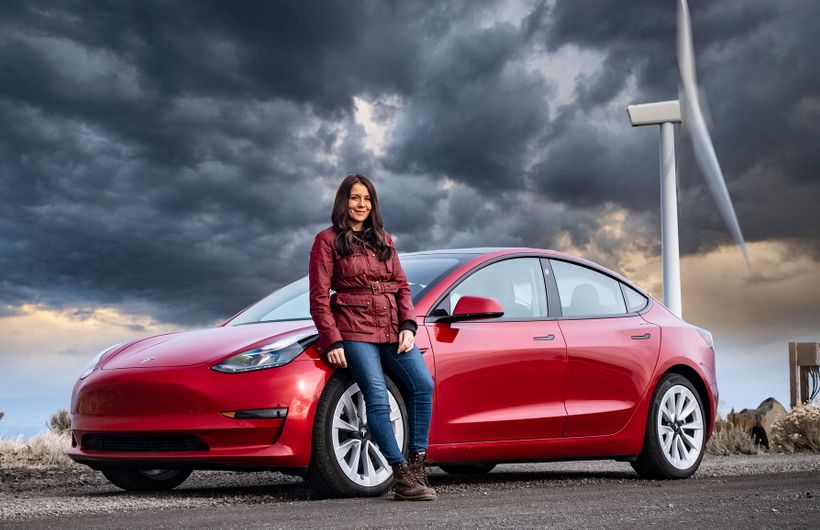EV production
Let’s move on from batteries to how electric cars are produced. To quote the article again: “Greenhouse gas emissions during production of an electric car are 70% higher than when manufacturing a petrol one”. A couple of days after publication this was also corrected.
But let's take a look at that first and much repeated claim. Volvo did a huge study in advance of the COP26 climate conference in Glasgow in 2021, claiming that greenhouse gas emissions during production of an older C40 electric car are nearly 70% higher than when manufacturing a petrol one - which is where Rowan got his figure from. In some cases that is true, but it doesn’t take into account something called ‘carbon payback’.
This is the idea that while electric cars use more energy in their production and have a ‘carbon debt’ over their petrol or diesel counterparts there’s a carbon payback period that depends on factors like the size of the battery, the fuel economy of an equivalent petrol or diesel car, and of course the big one - how the power used to charge an EV is generated.
An electric car is only as green as the energy you put into it and Reuters are one of many organisations that have crunched the numbers on this to find out when electric vehicles become cleaner than petrol cars. The test was done under laboratory conditions and the model is now being used with other tools to help shape policy at the U.S. Environmental Protection Agency (EPA).
They took a Tesla Model 3 with a range of 300 miles. And their extremely scientific test calculated that once you drive this car out of the showroom you’ll have to drive another 13,500 miles before you're doing less harm to the environment than an equivalent petrol or diesel model. That’s based on driving in the US where at the time 23% of electricity came from coal-fired plants. That’s roughly the equivalent of a year's driving.
In Norway, which generates almost all its electricity from renewable hydropower, the break-even point would come after just 8,400 miles.If the electricity to recharge the EV comes entirely from coal, generated in countries like China and Poland, you would have to drive 78,700 miles to reach carbon parity.
We can also quote the excellent ‘Carbon Brief’ who crunched the numbers around carbon payback and the Nissan Leaf back in 2019. They discovered that in the UK, the lifetime emissions per kilometre of driving a Nissan Leaf EV were about three times lower than for the average conventional car, even before accounting for the falling carbon intensity of electricity generation during the car’s lifetime.
It’s a complex subject and we don’t think Rowan did it justice in his Guardian article. Nor, disappointingly, did Volvo in their often reported study. So that's why we’re here to clear the air!
![]() Using renewables speeds up the carbon payback of production
Using renewables speeds up the carbon payback of production 














